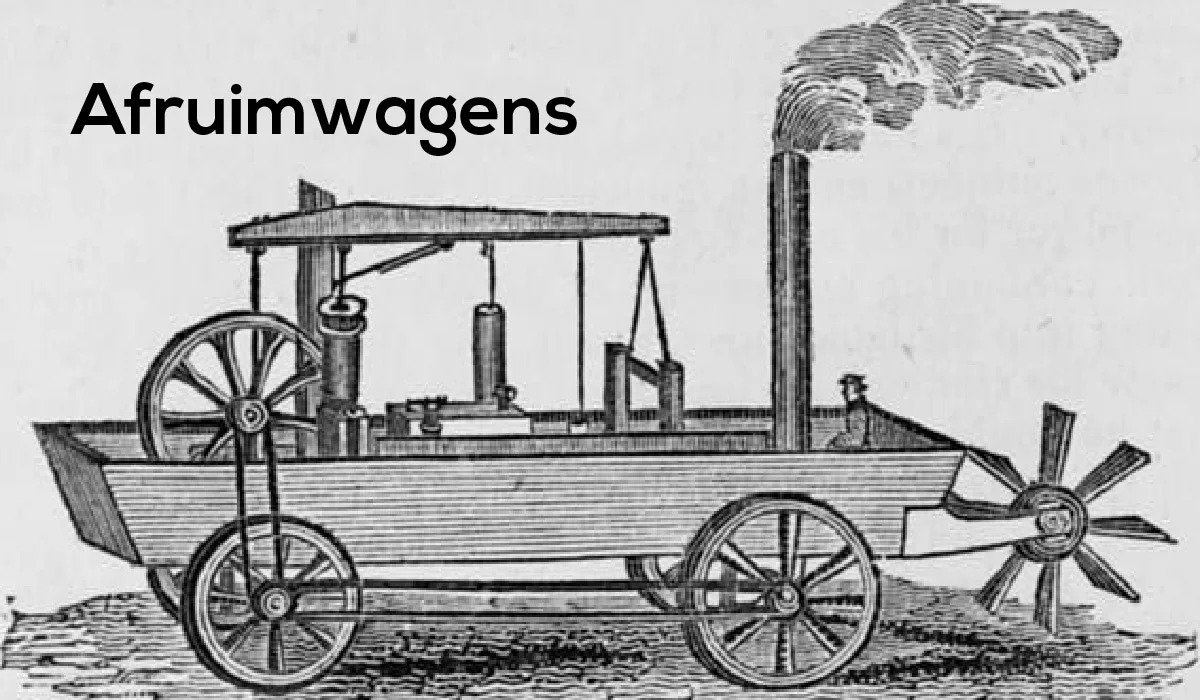In the world of agriculture, landscaping, Afruimwagens and industrial operations, specialized machinery has revolutionized efficiency and productivity. One such essential piece of equipment is the afruimwagen. Though the term may not be as widely recognized outside of Dutch-speaking regions, afruimwagens play a vital role in modern farming and logistics. In this article, we’ll explore what afruimwagens are, their uses, types, benefits, and why they’re becoming indispensable in various industries.
What is an Afruimwagen?
The word afruimwagen originates from Dutch and can be translated as “clearing wagon” or “removal cart.” These are specialized wagons or trailers designed for collecting, transporting, and clearing materials efficiently. They are often attached to tractors, harvesters, or other machines, enabling smooth movement of crops, soil, waste, or even industrial materials.
In essence, afruimwagens act as the link between harvesting, processing, and transport, ensuring that materials are collected quickly and handled with minimal waste or manual labor.
Historical Background of Afruimwagens
Before the invention of advanced agricultural machines, clearing fields after harvest or construction work was a labor-intensive task. Farmers relied on manual carts, horses, and long working hours to gather crops or debris. The introduction of mechanized afruimwagens in the mid-20th century changed the game. These wagons could be attached to tractors, significantly reducing the workload while speeding up the collection process.
Today, they are equipped with hydraulic systems, heavy-duty designs, and precision technology, making them far more efficient than their early counterparts.
Common Applications of Afruimwagens
Afruimwagens are versatile and used across a wide range of industries. Some of their most common applications include:
1. Agriculture
In farming, afruimwagens are used to:
- Collect freshly harvested crops such as potatoes, sugar beets, grains, and corn.
- Transport harvest from the field to storage facilities or processing plants.
- Clear plant residue or soil after harvesting.
2. Landscaping and Construction
In landscaping and construction projects, afruimwagens serve to:
- Transport soil, sand, or gravel.
- Collect and remove construction debris.
- Assist in site clearing for new projects.
3. Forestry and Gardening
They can be used to collect:
- Tree branches, wood chips, and other forestry byproducts.
- Garden waste or green clippings on larger estates.
4. Industrial and Municipal Use
In urban and industrial settings, afruimwagens are employed for:
- Transporting bulk materials.
- Assisting municipal cleaning services.
- Clearing snow or waste in some cases.
Types of Afruimwagens
There isn’t just one type of afruimwagen. Depending on their design, size, and purpose, they can be categorized into several types:
1. Open-Trailer Afruimwagens
- Simple, open containers used for bulk material.
- Common in construction and landscaping.
2. Covered Afruimwagens
- Designed with protective covers to prevent loss of crops or materials.
- Often used for delicate produce like grains or vegetables.
3. Hydraulic-Tipping Afruimwagens
- Feature hydraulic systems that allow quick unloading.
- Ideal for heavy-duty farming or construction applications.
4. Specialized Agricultural Afruimwagens
- Tailored for specific crops such as potatoes or sugar beets.
- Equipped with conveyor belts or elevators for gentle handling of produce.
Key Features of Modern Afruimwagens
Modern afruimwagens are engineered with advanced features to maximize efficiency. Some notable characteristics include:
- High Load Capacity: Ranging from a few tons to over 20 tons, depending on the model.
- Durable Materials: Built with reinforced steel or lightweight alloys to withstand heavy use.
- Hydraulic Systems: Enable smooth lifting, tipping, or unloading of cargo.
- Easy Attachment: Compatible with various tractors and machinery.
- Safety Features: Braking systems, stability designs, and protective covers for secure operation.
Benefits of Using Afruimwagens
The adoption of afruimwagens brings numerous advantages across industries. Some key benefits include:
1. Efficiency
They drastically reduce the time required for clearing, collecting, and transporting materials compared to manual labor or smaller carts.
2. Cost-Effectiveness
By saving labor hours and increasing productivity, afruimwagens lower operational costs for farmers and contractors.
3. Versatility
Their ability to handle different materials—from crops to construction debris—makes them suitable for multiple industries.
4. Reduced Crop Damage
Specialized afruimwagens with conveyors or padded interiors minimize crop bruising during transportation.
5. Sustainability
By reducing waste and enabling quicker clearing of land, afruimwagens contribute to sustainable land and resource management.
Afruimwagens in Sustainable Farming
As sustainability becomes a central theme in modern agriculture, afruimwagens play a role in eco-friendly practices. For instance:
- Efficient resource use: They reduce fuel consumption by minimizing trips needed to transport crops.
- Soil health: By quickly clearing residues, they prepare fields for the next planting season.
- Waste reduction: They help collect byproducts like crop residues that can later be used for composting or biofuel production.
Choosing the Right Afruimwagen
Selecting the correct afruimwagen depends on several factors:
- Purpose: Agricultural use versus construction or industrial applications.
- Capacity Needs: Small farms may require compact models, while large-scale operations need high-capacity wagons.
- Budget: Prices vary widely based on features, materials, and technology.
- Durability: Heavy-duty materials are essential for rugged use.
- Compatibility: Ensuring the wagon matches existing tractors or machinery is crucial.
Maintenance and Care
Like any machinery, afruimwagens require proper maintenance to ensure long life and consistent performance. Best practices include:
- Regular Inspection: Check for wear and tear, especially in hydraulic systems.
- Lubrication: Keep moving parts well-lubricated to avoid breakdowns.
- Cleaning: Clear out residues after use to prevent rust and material buildup.
- Storage: Protect from extreme weather by storing in covered areas.
The Future of Afruimwagens
Technology continues to transform the design and function of afruimwagens. Some emerging trends include:
- Automation: Self-loading and unloading wagons integrated with GPS systems.
- Smart Sensors: Monitoring load weight and adjusting for balance and efficiency.
- Eco-Friendly Designs: Lightweight materials and energy-efficient hydraulic systems.
As industries move towards precision farming and smart logistics, afruimwagens will remain integral, evolving to meet the growing demand for efficiency and sustainability.
Conclusion
Afruimwagens may not be a household term, but their impact on agriculture, construction, and industry is undeniable. From their humble beginnings as simple clearing carts to today’s high-tech, hydraulic-equipped wagons, they have revolutionized the way materials are collected, transported, and managed.
Whether in the hands of a farmer gathering crops, a contractor clearing debris, or a municipality maintaining urban spaces, afruimwagens deliver unmatched efficiency, cost savings, and versatility. As technology advances, these wagons will only become smarter, more sustainable, and more essential to modern operations.











